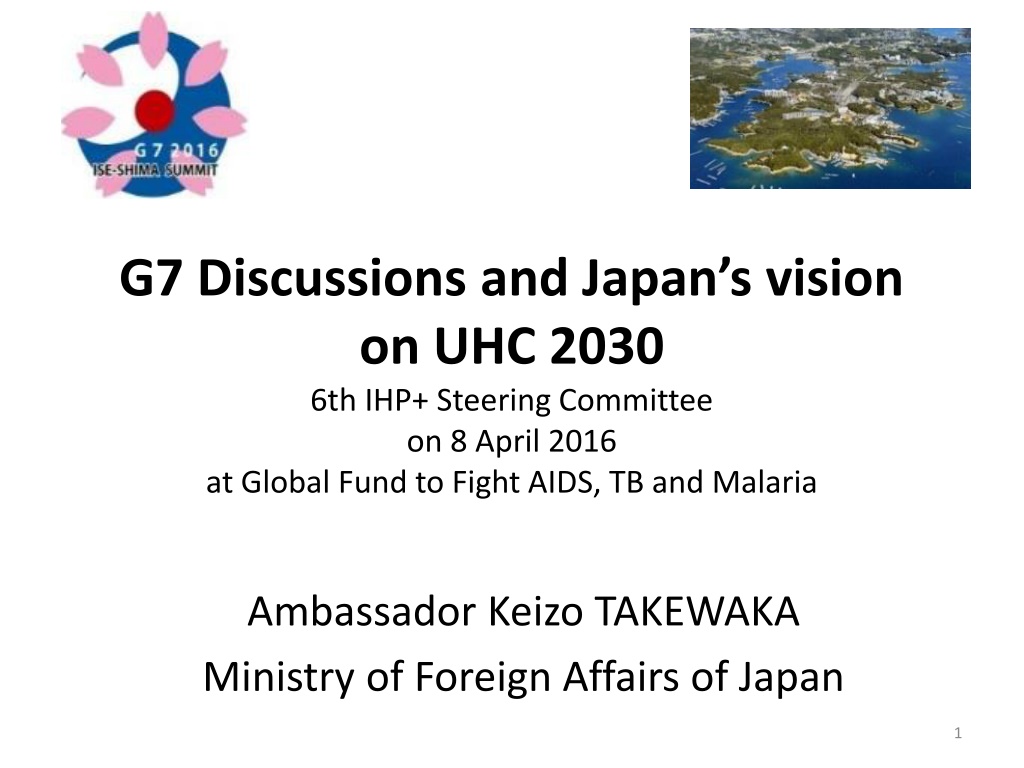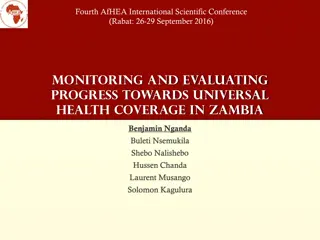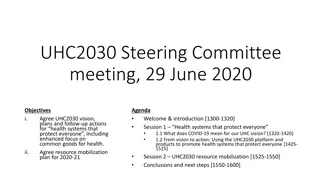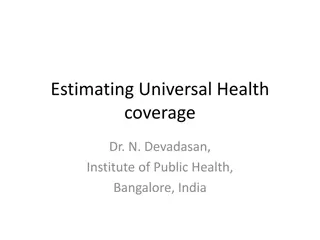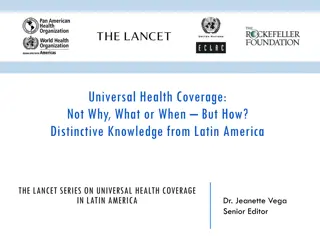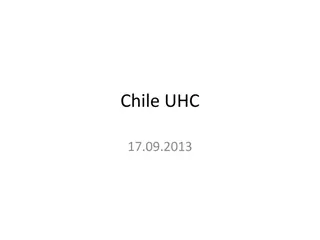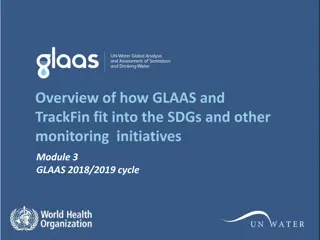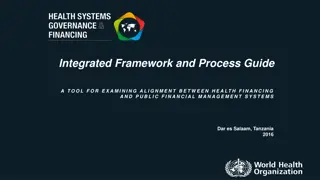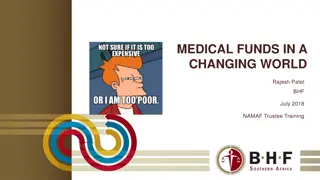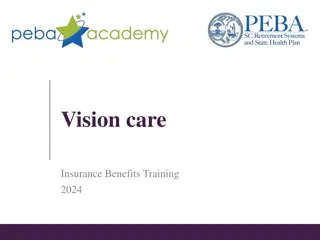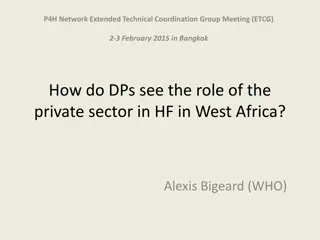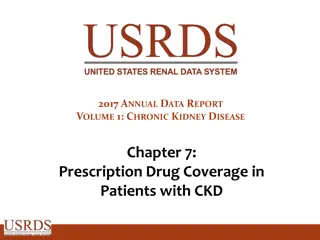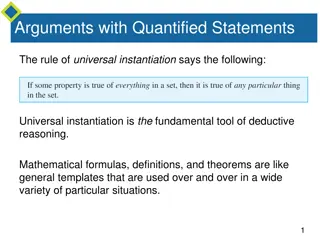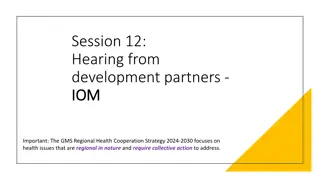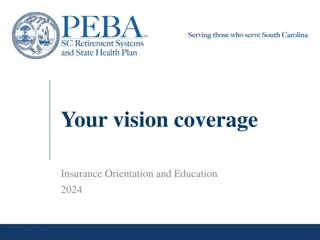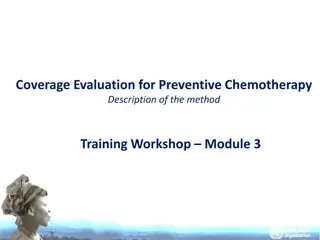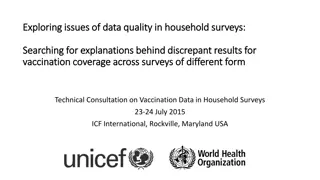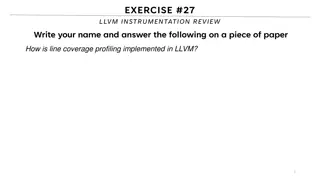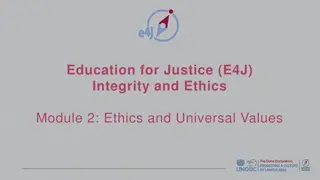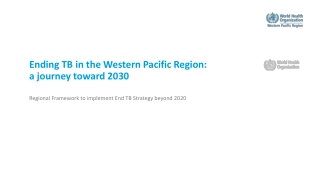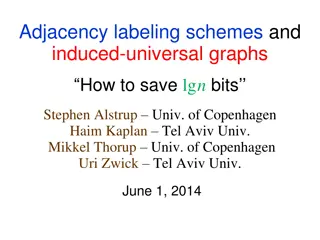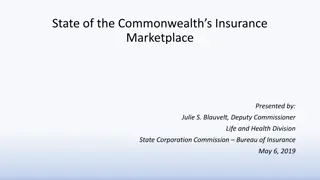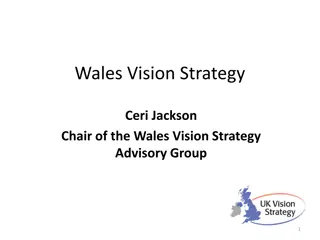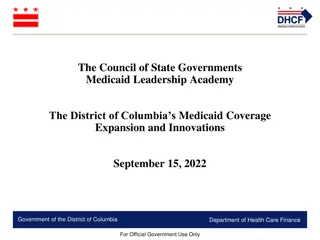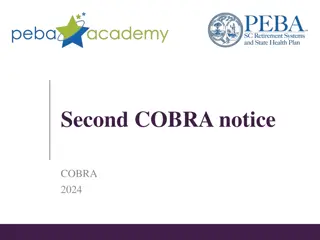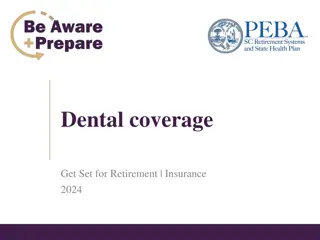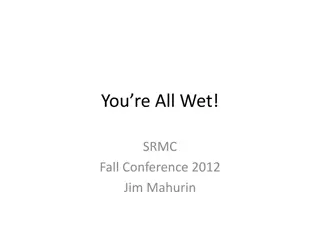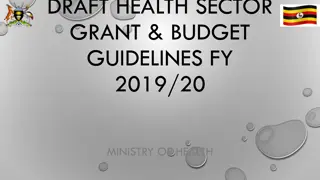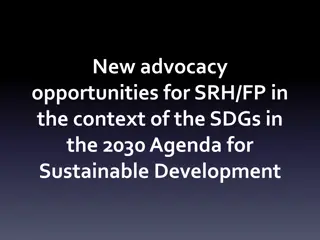Japan's Vision on Universal Health Coverage (UHC) 2030 and Global Health Priorities
Japan has been a key advocate of global health, prioritizing Universal Health Coverage (UHC) and sustainable development. Through various milestones and contributions, Japan aims to build resilient health systems and create a healthier world. Prime Minister Abe emphasizes the importance of forming international alliances to support developing countries in achieving UHC by leveraging expertise and resources from different sectors.
Download Presentation

Please find below an Image/Link to download the presentation.
The content on the website is provided AS IS for your information and personal use only. It may not be sold, licensed, or shared on other websites without obtaining consent from the author. Download presentation by click this link. If you encounter any issues during the download, it is possible that the publisher has removed the file from their server.
E N D
Presentation Transcript
G7 Discussions and Japans vision on UHC 2030 6th IHP+ Steering Committee on 8 April 2016 at Global Fund to Fight AIDS, TB and Malaria Ambassador Keizo TAKEWAKA Ministry of Foreign Affairs of Japan 1
Contents Introduction 3 Key milestone 4 UNGA side event 4 PM Abe s article on the Lancet 5 UHC Conference in Tokyo 6 G7 Health Experts Meeting 8 Japan s vision for G7 Ise-Shima Summit Health Agenda 9 Tasks ahead 11 2
Introduction Global health has been consistently Japan s top priority issue as chair of G7/G8 summit meetings. -Kyushu-Okinawa Summit in 2000 Establishment of Global Fund to Fight AIDS, Tuberculosis and Malaria in 2002 -Hokkaido-Toyako Summit in 2008 Global Health Innovative Technology Fund (GHIT) Human Security: Protection and empowerment of individuals to live, free from fear and want Health is an indispensable element of human security 2030 Agenda for Sustainable Development (SDGs) No one left behind 3
Key Milestones Japan s contributions to UHC 2030 September 2015 UN General Assembly Side Event The Path towards Universal Health Coverage <Policy framework was consolidated when SDGs adopted> Japan s global health policy: Basic Design for Peace and Health published in Sep. 2015 I emphasize here the need to bring together expertise and resources from donor countries, the international organizations including WHO, the Global Fund and World Bank, and the private sector to establish an international alliance to support developing countries to achieve stronger health systems. I hope that today s event will become an important step forward on the road to promote the formation of such an alliance to strengthen health systems towards the ultimate goal of achieving UHC. Japan is ready to lead this global discussion. ---Statement by Prime Minister Abe, on the occasion of the UNGA side event 4
PM Abes Article on the Lancet Japan s contributions to UHC 2030 Japan's vision for a peaceful and healthier world December 12, 2015 <The main points of the article> Japan has been an advocate of human security, which underlies Japan s policy of Proactive Contribution to Peace, and has taken action in support of this principle. Japan regards health as an indispensable element of human security. The 2030 agenda for sustainable development, which was adopted at the United Nations General Assembly this year, includes universal health coverage, to which Japan attached great importance during the negotiation process. Japan s global health priorities are; (i) To construct a global health architecture that can respond to public health crises (ii) To build resilient and sustainable health systems to promote health throughout the life-course, addressing the challenge of antimicrobial resistance. Japan, the world s fastest-ageing society, is pioneering the challenge of ageing by extending healthy life expectancy while maintaining a sustainable health system, on the basis of a life-course approach for all generations. With the G7 presidency in 2016, Japan is determined to contribute further to global health. 5
UHC Conference in Tokyo Japan s contributions to UHC 2030 December 16, 2015 Universal Health Coverage in the New Development Era: Towards Building Resilient and Sustainable Health Systems Japan hosted an international conference The 2030 Agenda includes numerous health related targets to be achieved including the achievement of Universal Health Coverage (UHC) which Japan has long been promoting as well as a wide range of countermeasures against diseases including infectious diseases. Next year, Japan will be the first country to assume the G7 Presidency after the adoption of the new Agenda I intend to take up health as a priority agenda at the G7 Ise Shima summit, and I would like to lead the discussion on the health challenges that the world faces in close cooperation with the other G7 countries. To develop such health systems in accordance with the unique circumstances of each respective country, strong political will, clear plans, and the mobilization of adequate financial and human resources on a global scale including among developing countries are indispensable. It is also important that relevant international organizations and donors share a common vision and strengthen their collaboration. ---Statement by Prime Minister Abe, on the occasion of the UHC conference 6
UHC Conference in Tokyo (contd) More than participants -Bill Gates, Co-chair, Bill & Melinda Gates Foundation -Margaret Chan, Director-General, WHO; -Jim Yong Kim, President, World Bank -Babatunde Osotimehin, Executive Director, UNFPA -Mark Dybul, Executive Director, The Global Fund to Fight AIDS, TB and Malaria -Seth Berkley, CEO, Gavi, the Vaccine Alliance -Ministers of African and Asian countries (Foreign Minister Tedros of Ethiopia, Health Minister Sakolsatayadorn of Thailand, Cabinet Secretary Macharia of Kenya, Dr. Kaloko, AU Commissioner for Social Affairs) Key Messages The Ebola crisis highlighted the need for better preparedness to deal with health security threats. The focus on preparing for large-scale crises should not deter from the everyday goal of strengthening health systems and ensuring that all people have full access to health services. UHC has gained ground as a mechanism for achieving equity in health and for making health systems more resilient to crises. UHC requires an inclusive process. UHC also requires strong political will at the highest levels. Domestic resources should ultimately support the bulk of financing for UHC, but external assistance is still crucial in many countries. 7
G7 Health Experts Meeting Japan s contributions to UHC 2030 January 2016: Japan assumed the Presidency of G7 January 18-19, 2016 1st Health Experts Meeting in Tokyo (incl. outreach) March 31-April 1, 2016 2nd Health Experts Meeting in Tokyo Attended by about 100 people, including G7 countries, The Government of Japan (Ministry of Foreign Affairs , Cabinet Secretariat, Ministry of Finance, Ministry of Health, Labour and Welfare (MHLW), Japan International Cooperation Agency (JICA)) and Resource groups including international organizations, academia, NGOs (Gates Foundation, Global Fund, Gavi, IPPF, OECD, UNDP, UNFPA, UNICEF, WFP, WHO, World Bank, Global Health Working Group, G7 Network of Health- related NGO in Japan, UNSG s High- level Panel on Global Response to Health Crises, Harvard-LSHTM Independent Panel on the Global Response to Ebola, NAM Commission on a Global Health Risk Framework for Future, the Advisory Group on Reform of WHO s work in Outbreak and Emergencies) 1stHealth Experts Meeting 2ndHealth Experts Meeting Intensive discussion among G7, as well as WHO (DDG Bruce Aylward, Director Edward Kelley), World Bank (Dr. Tim Evans) as the presenters for special session and Dr. Nabarro contributed by video message 8
Japans vision for G7 Ise-Shima Summit Health Agenda (under discussion) 3 key issues 1 Promote R&D and innovation in all areas Strengthening the global health architecture to respond to public health emergencies 2 Promoting UHC with better preparedness and prevention 3 Strengthening response to AMR 9
Japans vision for G7 Ise-Shima Summit Health Agenda (to be discussed) Enhanced and coordinated effort is needed for promoting UHC in the international community UHC 2030 Partnership To be launched in June 2016 10
Tasks ahead How we can be more value added? <For example> Platform to share and enhance best practices; Identifying key policies for the achievement of UHC, while remain tailor- made approach; Domestic resource mobilization; Some key elements of HSS, like health workers and health information system Assessment with measurable indicators, and accountability Coordination on the ground Enhanced collaboration with relevant organizations such as Global Fund and Gavi Governance, including budget implications and staffing, need more clarifications 11
Civil Society Strong voice from civil societies to support UHC towards the G7 Ise-Shima Summit (Quoted from Civil Society Recommendation on Health Agenda Items to be discussed at the G7 Ise-Shima Summit 2016 submitted in November, 2015) PREVENTION IS BETTER THAN RESPONSE Endorse the principles of UHC: that everyone has the right to health without facing financial hardship. Assert that UHC must not discriminate against any social groups or leave anyone behind, bringing the poorest and marginalised into coverage urgently. Closing equity gaps is imperative to the success of the SDGs. Support a new Global Partnership or Alliance for UHC which can drive global momentum and ensure all actors are playing their part. Governments, the UN, civil society and the private sector need to refocus, harmonise and align their policies and contributions towards UHC. Support greater UHC accountability to ensure sufficient monitoring and commitment. 12
